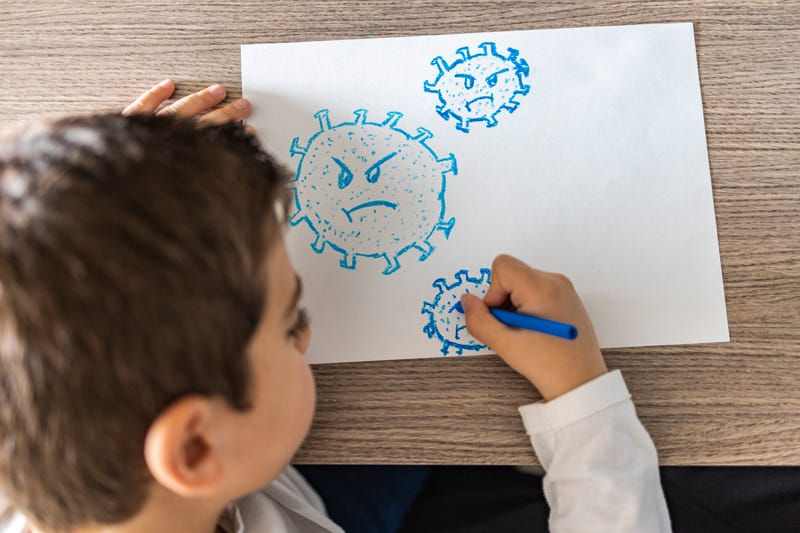
CHICAGO (WBBM NEWSRADIO) -- Ann & Robert H. Lurie Children's Hospital of Chicago recently polled parents across the country in an effort to better gauge the impact of the pandemic on children's mental health and what it might mean going forward.
The poll found that 71 percent of parents believe the pandemic has taken a toll on the mental health of their children. Roughly the same percentage, 68 percent, said they wished they had let their kids socialize more, saying they prioritized social distance too much over mental health.
Parents cited social isolation as the most unhealthy aspect of the pandemic, followed by remote learning and too much screen time. Notably, all three were cited at least twice as frequently as fear of the virus.
This is good news from the perspective of stressors said clinical psychologist Dr. Colleen Cicchetti. She said for most children the impact is less-likely to be long-term, as opposed to that in children who experienced more serious aspects of the pandemic like death, the loss of parents’ income, or food insecurity.
“From the perspective of stressors, this is good news,” said Colleen Cicchetti, PhD, Executive Director, Center for Childhood Resilience and Clinical Psychologist, The Pritzker Department of Psychiatry and Behavioral Health, in a statement. “Children being impacted by the more serious effects of the virus, including loss of loved ones and the anxiety of instability of parental income, food insecurity and homelessness are more toxic stressors. Children experiencing toxic levels of stress or trauma are more likely to have longer-term impact from their COVID experience and require more specialized care and interventions. The factors that most parents from this sample identified represent factors that, while significant, are also beginning to shift as the COVID-19 restrictions are lifted.”
Meanwhile, of the parents surveyed 64 percent believe the pandemic will have a lasting effect on their child’s development, with most (71 percent) citing emotional development as their top concern.
Dr. Colleen Cicchetti said adjustments to rules and more attention, more time spent with kids, are also positives that will help with outcomes.
LISTEN on the Audacy App
Sign Up and Follow Audacy
Facebook | Twitter | Instagram
